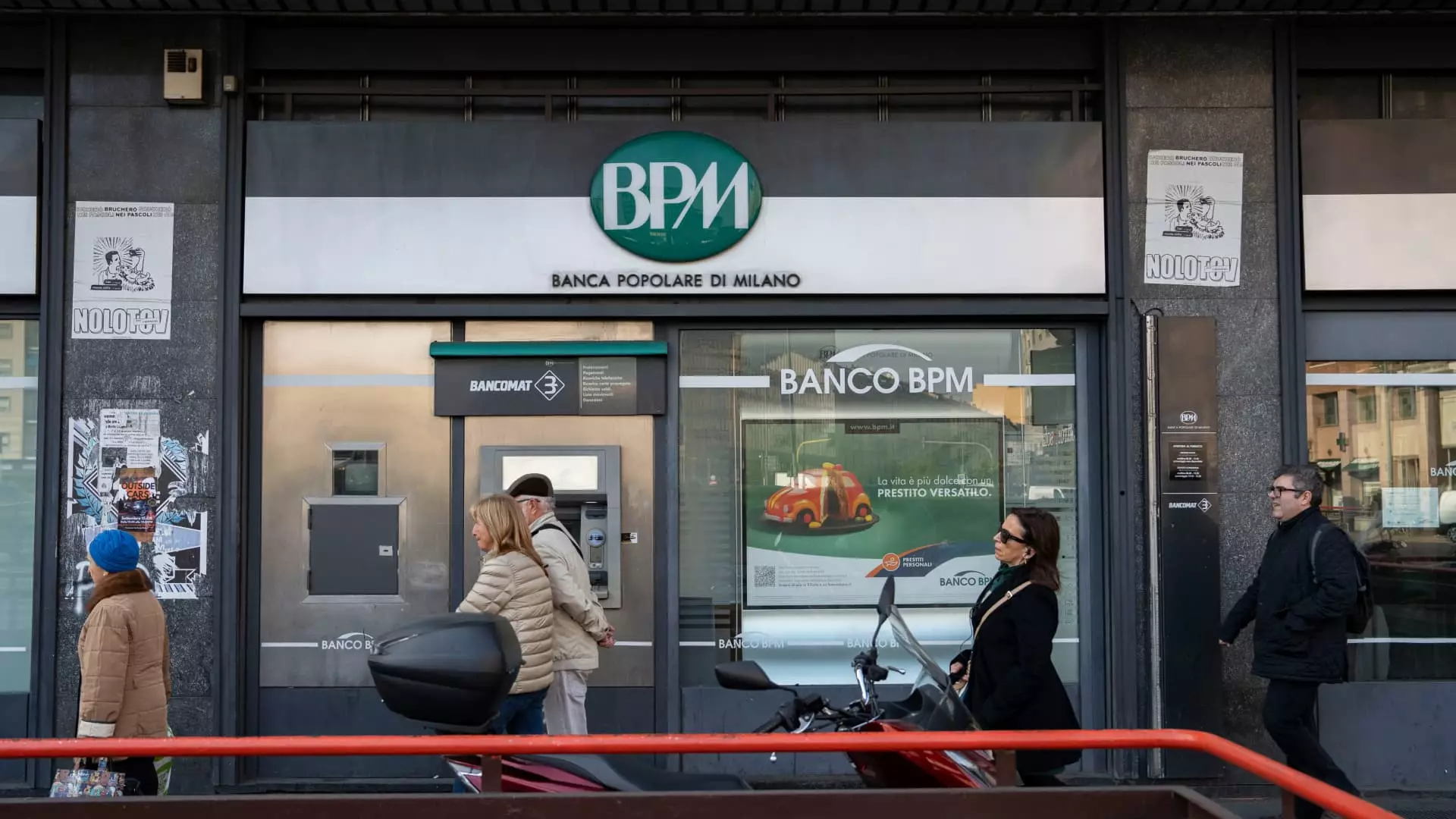The recent bid by UniCredit to acquire Banco BPM has stirred considerable debate in the Italian banking community, underscoring the complexities inherent in the sector. The unexpected offer, amounting to approximately 10 billion euros, has elicited a sharp response from Banco BPM’s board, which argues that the proposal inadequately reflects its profitability and potential for further growth. As the Italian banking landscape continues to evolve, the dynamics of mergers and acquisitions (M&A) are coming to the forefront, stirring conversations about strategic alignment, market competition, and regulatory challenges.
In a statement characterized by caution and clarity, Banco BPM’s board of directors expressed its concerns regarding UniCredit’s unsolicited takeover offer. They conveyed that the proposal was delivered under unusual terms that were not previously agreed upon, marking it as a surprise to stakeholders. This highlights a significant point of contention: the bid does not take into account the bank’s existing profitability and potential. Banco BPM’s leadership fears that the accelerated nature of a potential merger could compromise their legal autonomy, signaling a lack of confidence in the proposition and raising alarms about the possible implications for their stakeholders.
The board’s analysis suggests that the current socio-economic landscape requires careful navigation, especially when contemplating significant mergers that could alter the institutions’ operational frameworks. Their apprehension reflects a broader sentiment within the industry regarding the impacts of such abrupt strategic decisions.
For UniCredit, the rationale behind the takeover bid appears multifaceted. CEO Andrea Orcel has framed Banco BPM as a historically significant target, referencing previous discussions about a potential union that had surfaced in 2022. However, this current approach raises a host of strategic implications, particularly with UniCredit also eyeing Germany’s Commerzbank. The Italian lender’s vision includes stronger, more competitive banks that can stand toe-to-toe with other major economic blocs. Still, engaging in simultaneous negotiations could create substantial risks, as highlighted by the Italian Economy Minister, Giancarlo Giorgetti. His pointed remarks regarding the dangers of fighting on two fronts reveal a prevailing skepticism about UniCredit’s capacity to juggle multiple ambitious projects.
Moreover, UniCredit’s expansion ambitions have encountered resistance, particularly from the German government. Such external challenges could impede the swift advancement of its bid for Banco BPM, further complicating its position.
Market Reactions and Future Outlook
Market reactions to UniCredit’s proposal have been mixed. On the day following the announcement, Banco BPM’s stock saw a minor decline of 0.20%, indicating investor skepticism regarding the offer’s viability. Conversely, shares in UniCredit remained relatively stable, reflecting a degree of investor confidence in the bank’s overall strategy. Notably, the proposed offer of 6.657 euros per share represents only a marginal premium from the stock’s previous closing price, suggesting that the market is not viewing the bid as particularly generous.
The transaction’s future remains uncertain, especially as the broader context reveals a complicated web of operations, including Banco BPM’s recent acquisition of a 5% stake in Monte dei Paschi. This move, which occurred in the backdrop of the Italian government seeking to reduce its stake in the beleaguered lender, underscores the need for calculated maneuvers in matters of M&A. Banco BPM’s leadership has made it clear that it isn’t inclined to exceed a 10% acquisition threshold at this juncture, further complicating the market dynamics.
As the potential takeover bid from UniCredit unfolds, it serves as a critical moment for the Italian banking sector. The interplay of market forces, regulatory scrutiny, and corporate strategy presents both opportunities and challenges for major players like Banco BPM and UniCredit. For now, the outcome of this unsolicited approach remains to be seen, but it undeniably highlights the complex realities faced by financial institutions in an ever-evolving economic landscape. Stakeholders will be observing closely how these developments will affect the balance of power in the Italian banking ecosystem, and whether the aspirations of consolidation will ultimately bear fruit or fall victim to the challenges of integration.


Leave a Reply